Electricity History
Topics
- History of Electricity and Magnetism
- Introduction to electrical models
Learning objectives
- Appreciate electricity as a modern technology
- Differentiate between a model and a physical object
Guiding questions
- What technologies enable our electricity infrastructure?
- What technologies are available to deliver the services we want?
- How do we estimate electricity usage and impacts?
First observations of charge
- Ancient Greeks
- Rubbed amber and fur
- Noticed the attraction of lightweight particles
First observations of magnetism
- Lodestone observations in Greece, India, China.
Electrons
- What is an electron?
- We have different models of electrons
Bohr model of the atom
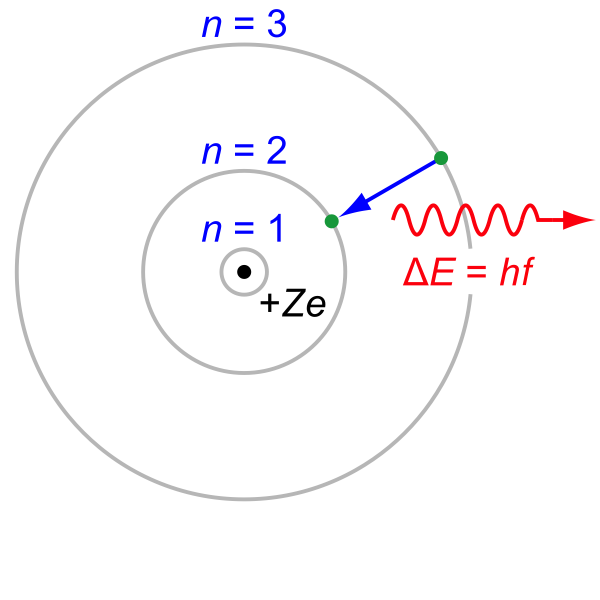
Atomic Orbital Model of the atom
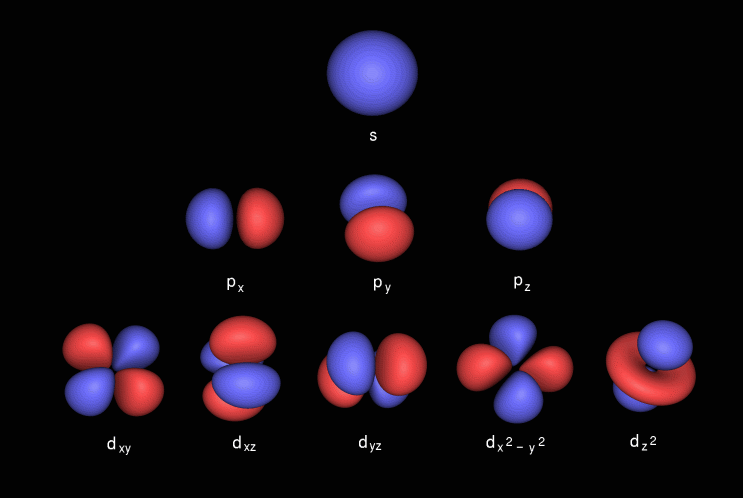
Conductors and Insulators
- Conductors have electrons that are mobile
- Insulators have tightly bound electrons
What is magnetism?
- Magnetic fields can be created by currents or magnetic materials
- Image of magnetic field lines
Compass
- Observed as early as 200BC by the Chinese
- Navigational use in China about 1000 AD
Capacitor
- Capacitors are capable of storing electric charge
- Leyden jar invented in 1744 by Ewald Georg von Kleist
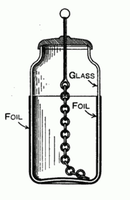
Battery
- Battery can provide current at a steady voltage
- Demonstrated by Alessandro Volta in 1800 using alternating plates of copper and zinc
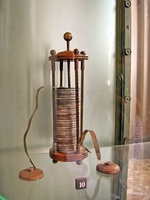
Electromagnetism
Electromagnetism
- The discovery of the relationship between electric current and magnetic fields enabled our modern electricity system.
- Motion can be transformed into electric currents
- Electric currents can be transformed into motion
Compass Needle Deflection
- Observed by Hans Christian Oersted in 1819
- Realized that electric current flowing through a wire creates a magnetic field around the wire
Ampere’s Law
- Quantified the relationship between this circulating magnetic field and the current in the wire
- Andre-Marie Ampere, 1820
- \oint B \cdot dl = \mu_0 I_{enc}
Electromagnetic Rotation
- Michael Faraday, 1821
Ohms Law
- 1827
- Georg Ohm
- Ohm’s Law
- The current through a conductor is directly proportional to the potential difference across the two points.
- V=IR
- This will be a model we use frequently
DC Electric Motor
- Anyos Jedlik
- 1828
- commutator
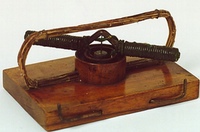
Lenz’s Law
- 1833
- An induced electromotive force always gives rise to a current whose magnetic field opposes the original change in magnetic flux
Maxwell’s Laws - 1861
- \nabla\cdot E = \rho/\epsilon_0
- Electric field lines begin on charges
- \nabla\cdot B = 0
- No magnetic charges
- \nabla \times \mathbf{E} = -\frac{\partial \mathbf{B}} {\partial t}
- Changing magnetic field generates an electric field
- \nabla \times \mathbf{B} = \mu_0\left(\mathbf{J} + \varepsilon_0\frac{\partial \mathbf{E}} {\partial t} \right)
- Electric current creates a magnetic field
Remnant DC system
- San Francisco has DC grid to power old elevators
AC Electric Motor
- Ferraris
- Nikola Tesla
- 1885
First Electric Vehicle
Flocken Elektrowagen, First Electric Vehicle, 1888
Pearl Street Station
- Operated by Edison Electric in 1882 in Manhattan
- Used a DC Generator and steam engines
AC vs DC current
- DC championed by Thomas Edison
- AC championed by George Westinghouse
Transformer
- 1884 ZBD Transformers
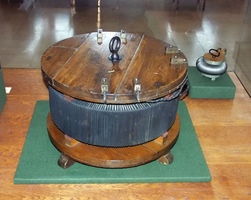
Transition to Widespread Electrification
- By 1930, 70% of households were electrified
- Rural Electrification Administration established in 1935
Transistor
- 1947
- Bardeen, Brattain, Shockley
- Enabled the electronics and computer revolution
Lighting
- 1880’s sees the first commercialization of incandescent light bulbs after years of research
- Title III of the Energy Independence and Security Act of 2007 effectively bans the use of incandescent light bulbs
Deregulation
- Electricity monopolies were dismantled
- California Electricity Crisis 2000-2001
Renewable Portfolio Standards
- California Assembly Bill 32
- Mandates reductions in greenhouse gas emissions
Electricity Contribution Environmental Problems
- Acid Rain
- Climate Change
Financing Innovations
- Property Assessed Clean Energy (PACE), 2008
- Sonoma County had first county-wide program in the nation
- Solar Lease, Power Purchase Agreement